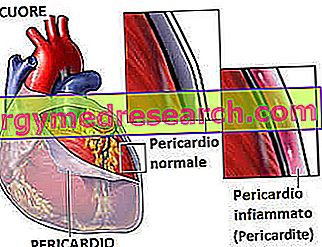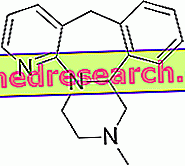
What is Mepact?
Mepact is a powder for preparing a suspension for infusion (drip into a vein). The active ingredient contained in it is mifamurtide.
What is Mepact used for?
Mepact is used in the treatment of high-grade non-metastatic osteosarcoma (a type of bone cancer) in children, adolescents and young adults. "High grade" means that the cancer is in severe form; "non-metastatic" indicates that the cancer is at an early stage and has not yet spread widely in the body. Mepact is used with other cancer drugs after it has been surgically removed.
Because the number of patients with osteosarcoma is low, the disease is considered "rare" and Mepact was designated an "orphan medicine" (a medicine used in rare diseases) on June 21, 2004.
The medicine can only be obtained with a prescription.
How is Mepact used?
Treatment with Mepact should be started and supervised by a specialist who is experienced in the diagnosis and treatment of osteosarcoma.
The dose of Mepact depends on the size and weight of the patient and is given twice a week for 12 weeks, then once a week for 24 weeks. Mepact is given as a slow intravenous infusion lasting one hour. It should not be administered by bolus injection (all at once).
Mepact is not recommended in patients under the age of 2 years or over 30 years as the safety and efficacy of the medicine in these age groups have not been studied. It should also be used with caution in patients with severe kidney or liver problems.
How does Mepact work?
The active ingredient in Mepact, mifamurtide, is an immunomodulator and works by activating macrophages and monocytes (types of white blood cells that are part of the immune system). The exact mode of action of mifamurtide in osteosarcoma has not been completely understood, but it is hypothesized that it causes white blood cells to release chemicals that kill cancer cells.
What studies have been carried out on Mepact?
The effects of Mepact were first tested in experimental models before being studied in humans.
Mepact was the subject of one main study involving 678 patients with non-osteosarcoma
high grade metastatic. After surgery for surgical removal of cancer, all patients were given various combinations of anticancer drugs. Half of the patients were also given Mepact. The study compared patients also treated with Mepact with those who had not been given. The main efficacy parameter was the number of surviving patients without disease reappearance. Patients underwent controls for 10 years.
What benefit has Mepact shown during the studies?
Mepact, used together with other anticancer drugs, prolonged the survival interval of the patients without reappearance of the disease: 68% of the patients treated with Mepact (231 of 338) survived without reappearance of the disease against 61% of the patients to whom it had not been given (207 out of 340). Furthermore, the risk of death was reduced by 28% in patients treated with Mepact.
What is the risk associated with Mepact?
The most common side effects associated with Mepact (seen in more than 1 patient in 10) are anemia (low red blood cell count), anorexia (loss of appetite), headache, dizziness, tachycardia (accelerated heart rate), hypertension (high blood pressure), hypotension (low blood pressure), dyspnoea (difficulty breathing), tachypnea (accelerated breathing), cough, vomiting, diarrhea, constipation, abdominal pain, nausea, hyperhidrosis (excessive sweating), myalgia (muscle pain), arthralgia (joint pain), back pain, pain in the extremities (arms and legs), fever, chills, fatigue (tiredness), hypothermia (low body temperature), generalized pain, malaise, asthenia (weakness) and chest pain. For the full list of all side effects reported with Mepact, see the Package Leaflet.
Mepact should not be used in patients who may be hypersensitive (allergic) to mifamurtide or any of the other ingredients. It should also not be used in conjunction with ciclosporin or other calcineurin inhibitors (drugs that reduce the activity of the immune system) or with high doses of non-steroidal anti-inflammatory drugs (NSAIDs, drugs used to fight pain and inflammation).
Why has Mepact been approved?
The Committee for Medicinal Products for Human Use (CHMP) decided that the benefits of Mepact outweigh its risks when used in combination with other anticancer drugs in the treatment of resectable high-grade non-metastatic osteosarcoma (surgically removable) following macroscopically complete surgical resection. The committee recommended that Mepact be given marketing authorization.
More information on Mepact:
On 6 March 2009, the European Commission issued a marketing authorization valid throughout the European Union to IDM Pharma, SA for Mepact.
For a summary of the opinion of the Committee for Orphan Medicinal Products on Mepact, click here.
For the full EPAR for Mepact, click here.
Last update of this summary: 01-2009.



